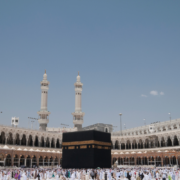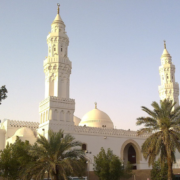
The Significance of Spiritual Reflection During Umrah (Important Points)
Embarking on the sacred journey of Umrah is not merely a physical pilgrimage; it is a profound spiritual experience that transcends the boundaries of time and space. Central to the essence of Umrah is the concept of spiritual reflection, a practice deeply rooted in Islamic tradition and spirituality. In this article, we delve into the significance of spiritual reflection during Umrah, exploring its importance, benefits, and practical implications for pilgrims.
At its core, spiritual reflection during Umrah involves introspection, contemplation, and connection with the Divine. It is a time for pilgrims to pause, detach from the distractions of daily life, and turn inward to assess their spiritual journey. This period of self-examination allows pilgrims to evaluate their relationship with Allah, seek forgiveness for past transgressions, and set intentions for personal growth and spiritual renewal.
One of the most profound aspects of spiritual reflection during Umrah is the opportunity for pilgrims to engage in acts of worship with heightened mindfulness and presence. From performing Tawaf around the Kaaba to offering prayers at the sacred sites of Safa and Marwa, every ritual of Umrah is imbued with spiritual significance. By approaching these rituals with a spirit of reflection and devotion, pilgrims can deepen their connection with Allah and experience a profound sense of spiritual fulfillment.
Moreover, spiritual reflection during Umrah serves as a catalyst for inner transformation and personal growth. As pilgrims navigate the sacred precincts of Makkah and Medina, they are confronted with reminders of their mortality and the transient nature of worldly life. This heightened awareness of mortality encourages pilgrims to reflect on the purpose of their existence, the legacy they wish to leave behind, and the importance of living a life aligned with their values and beliefs.
In addition to fostering personal growth, spiritual reflection during Umrah also cultivates a sense of humility, gratitude, and empathy within pilgrims. By witnessing the diversity of the global Muslim community gathered in Makkah, pilgrims are reminded of their shared humanity and interconnectedness. This realization fosters a sense of unity and solidarity, transcending cultural, linguistic, and geographical barriers.
Practical Tips for Spiritual Reflection During Umrah:
- Intention Setting: Begin your journey with a clear intention to engage in spiritual reflection and self-examination. Set specific goals and objectives for your Umrah experience, focusing on areas of personal growth and spiritual development.
- Quiet Contemplation: Carve out moments of solitude and silence amidst the hustle and bustle of the pilgrimage. Find quiet corners within the Haram or Masjid an-Nabawi where you can sit in contemplation, recite Quran, and engage in heartfelt supplication.
- Journaling: Keep a journal throughout your Umrah journey to document your thoughts, feelings, and reflections. Writing can be a powerful tool for self-expression and introspection, allowing you to process your experiences and insights more deeply.
- Seek Knowledge: Take advantage of opportunities to attend lectures, workshops, and spiritual gatherings during your Umrah trip. Engage with knowledgeable scholars and spiritual mentors who can offer guidance and wisdom on your spiritual journey.
- Gratitude Practice: Cultivate a mindset of gratitude by reflecting on the blessings and privileges bestowed upon you. Express gratitude for the opportunity to perform Umrah, for the companionship of fellow pilgrims, and for the Divine guidance that illuminates your path.
In conclusion, spiritual reflection is an integral aspect of the Umrah experience, offering pilgrims a unique opportunity for self-discovery, growth, and spiritual renewal. By approaching Umrah with a spirit of mindfulness, intentionality, and devotion, pilgrims can unlock the transformative power of this sacred journey and emerge spiritually rejuvenated and empowered.
Recent Posts
The Significance of Spiritual Reflection During Umrah (Important Points)
Navigating Islamic Etiquette: Dos and Don’ts for Umrah Pilgrims
Exploring the History and Symbolism of Key Umrah Sites
All Categories
Tags

Thailand





